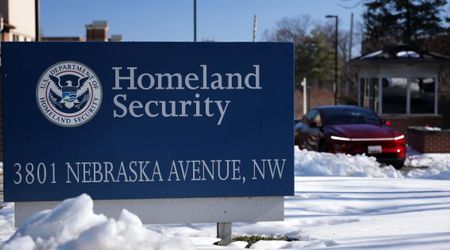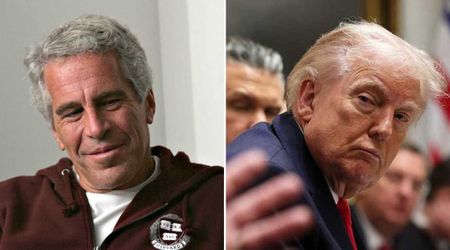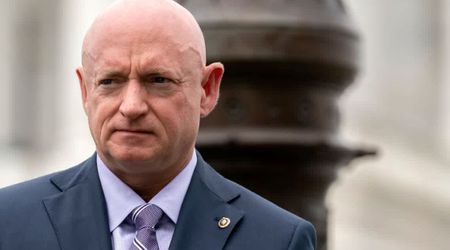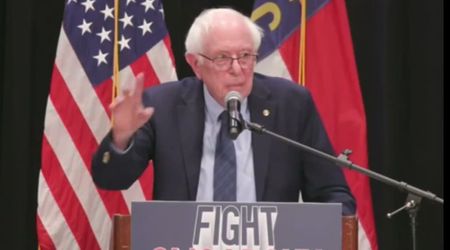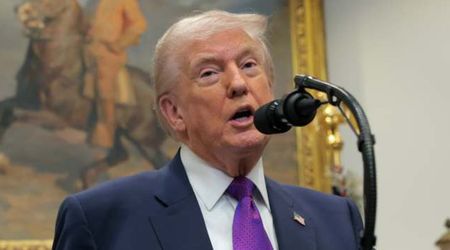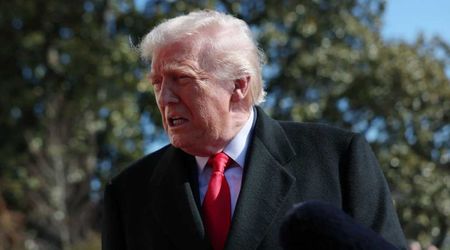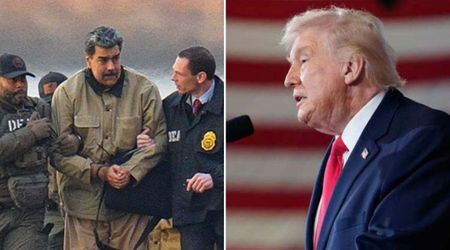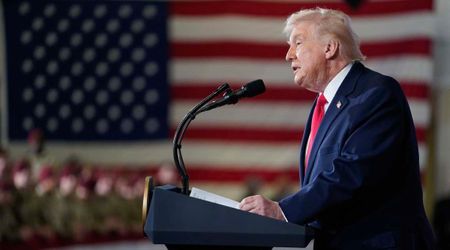Internet weighs in as SCOTUS divided on tech giants' challenge to Florida, Texas laws restricting social media regulation

WASHINGTON, DC: The Supreme Court of the United States on Monday, February 26, deliberated on a high-profile case that challenges laws in Florida and Texas aimed at curbing content regulation by social media giants.
The case has been closely monitored as both sides of the argument have portrayed themselves as champions of free speech online.
During the oral arguments, which lasted for nearly four hours, the nine justices of the court assessed the constitutionality of laws signed by Republican governors of both states in 2021, per the New York Post.

However, the justices appeared cautious about issuing a sweeping judgment on the matter, given the complexities of the case.
Justice Neil Gorsuch remarked, “Separating the wheat from the chaff here is pretty difficult,” while Justice Amy Coney Barrett cautioned that the cases presented "land mines" for herself and her colleagues.
Florida and Texas had moved swiftly to regulate social media companies' moderation policies after former President Donald Trump was deplatformed by Facebook and X, then known as Twitter, following the Capitol riot on January 6, 2021.
What did the SCOTUS say regarding the two GOP-controlled state’s laws?
The state of Texas has enacted a law that prohibits companies from banning users based on their views and mandates that they disclose their content policies.
In addition, Florida has implemented a law that prohibits the banning of public figures and targets the practice of "shadow banning," in which social media platforms covertly limit the reach of certain users.
During Monday’s Supreme Court hearing, a key point of contention arose regarding whether online platforms should be classified as publishers or common carriers.
Publishers are entitled to broad First Amendment protections, while common carriers are subject to government regulation similar to that of public utilities.
Chief Justice John Roberts seemed to edge toward the former camp, asking at one point: “I wonder, since we’re talking about the First Amendment, whether our first concern should be with the state regulating what we have called the modern public square?”
His conservative peers Samuel Alito and Clarence Thomas, who drew laughs when he quipped that “I’ve been fortunate, or unfortunate, to have been here for most of the development of the internet,” appeared to lean the other way.
Thomas suggested at one point that social media companies were seeking constitutional protection for “censoring other speech,” while Alito asked whether the term “content moderation” was not merely a “euphemism for censorship” — adding later that the phrase struck him as Orwellian.
However, Brett Kavanaugh, a conservative justice, seemed to disagree with Alito's assertion, stating: “When I think of Orwellian, I think of the state, not the private sector, not private individuals.”
Additionally, Kavanaugh questioned Florida Solicitor General Henry Whitaker on the Sunshine State legislation, informing him: “A really important sentence in our First Amendment jurisprudence … [is] the ‘concept that the government may restrict the speech of some elements of our society in order to enhance the relative voice of others is wholly foreign to the First Amendment.'”
The justice then asked whether “the government apply such a policy to publishing houses and printing presses and movie theaters about what they show.”
“Why isn’t that a classic First Amendment violation,” asked liberal Justice Elena Kagan, “for the state to come in and say, ‘We’re not going to allow you to enforce those sorts of restrictions?'”
Whitaker responded to Kavanaugh by saying that, unlike newspapers and bookshops, social media corporations weren't engaged in "inherently expressive conduct."
The bench also raised concerns about the potential effects of maintaining the current state laws on email and messaging services, as well as e-commerce platforms like Uber and Etsy.
How did the social media giants defend their interests in court on Monday?
The social media companies were backed by trade associations NetChoice and the Computer and Communications Industry Association (CCIA), which claimed that the two regulations violated their fundamental First Amendment rights.
Paul Clement, an attorney for the tech sector, remarked on the Florida law, “It interferes with editorial discretion. It compels speech. It discriminates on the basis of content, speaker, and viewpoint.”
He added, “It does all this in the name of promoting free speech, but loses sight of the first principle of the First Amendment, which is it only applies to state action.”
In addition, Clement argued that because of the platforms' massive amount of content and the requirement to appease both users and advertisers, editorial discretion is "absolutely necessary."
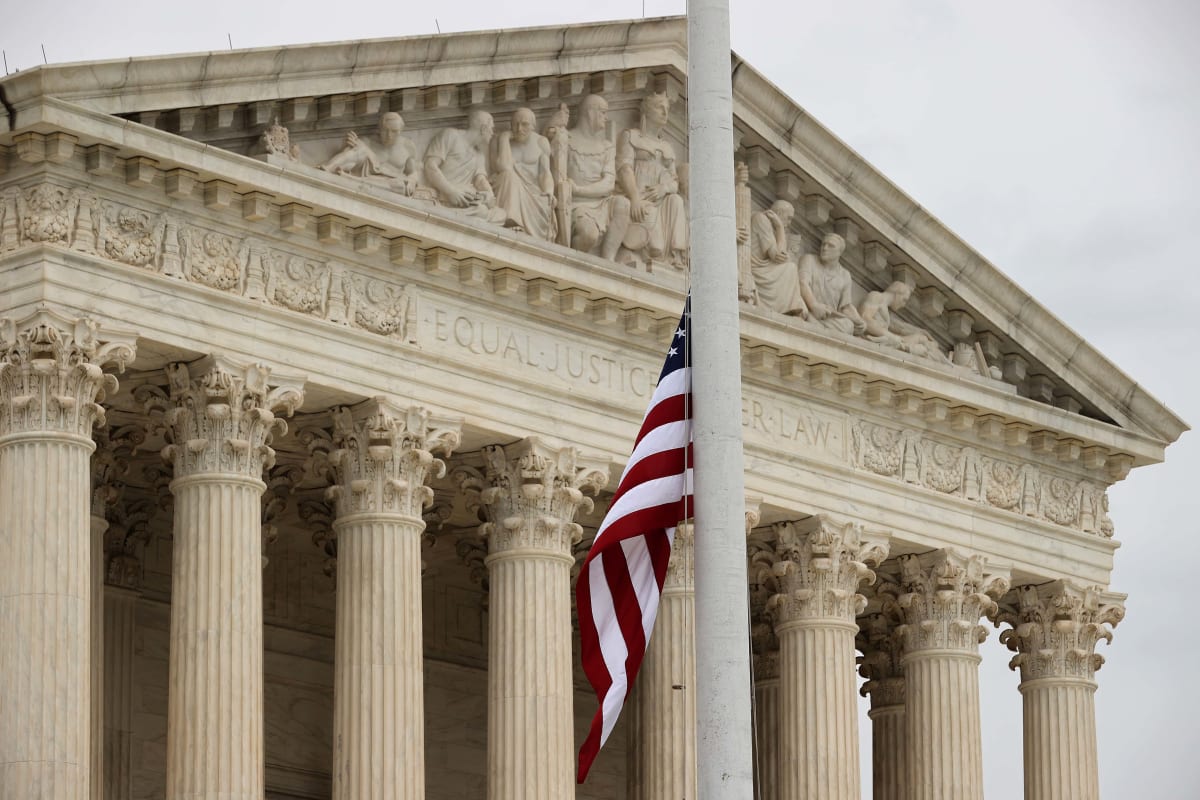
The judges occasionally gave off the impression that they were wary about allowing Big Tech to operate without consequence.
“Does Gmail have a First Amendment right to delete, let’s say, Tucker Carlson’s or Rachel Maddow’s Gmail accounts if they don’t agree with his or her viewpoints?” Alito pressed Clement, who acknowledged in response that it “might be able to do that.”
“This is a sprawling statute and it makes me a little bit nervous,” said Barrett, who added of the social media companies that it was “not obvious to me in any way that they can’t qualify as common carriers.”
Although the Justice Department does not believe that "social media platforms are immune from government regulation," Solicitor General Elizabeth Prelogar asked the judges to deliver a narrow ruling against the state laws, notwithstanding the Biden administration's support for the tech sector.
“Governments at every level, obviously have an important interest in facilitating communication and the free exchange of ideas,” Prelogar asserted. “But in promoting that interest, governments have to stay within the bounds of the First Amendment.”
The Supreme Court is expected to rule on the Texas case, NetChoice v Paxton, and the Florida case, Moody v NetChoice, before the end of June, this year.
Internet weighs in as SCOTUS considers whether to uphold laws in Florida and Texas
People on X expressed their reactions to Monday's Supreme Court hearing, where laws from both Florida and Texas that seek to impose limitations on the ability of social media companies to moderate content were brought to question with the justices hesitant on delivering a decisive judgment just yet.
The Supreme Court considers whether to uphold Republican-backed laws in Florida and Texas that seek to impose restrictions on the ability of social media companies to moderate content based on the claim that they disfavor conservative speech. https://t.co/A0ntM0Pp2H
— NBC News (@NBCNews) February 26, 2024
One X user remarked, "Arguing that lies are ok. That's where we are."
Another user claimed, "It’s the “you can’t have it both ways” laws. Either you are moderating the content and thus 100% liable for EVERYTHING posted on your platform, or you are not and you don’t do any moderation."
It’s the “you can’t have it both ways” laws. Either you are moderating the content and thus 100% liable for EVERYTHING posted on your platform, or you are not and you don’t do any moderation.
— Nathan Fisher (@GonzoFilms) February 26, 2024
"Disfavor conservative speech or what it has become under trump - conspiracy, delusion, extremism, and hate?" another user asked.
Disfavor conservative speech or what it has become under trump - conspiracy, delusion, extremism, and hate?
— who dis? new phone. (@notjeffredfruit) February 26, 2024
"Lies Are Not Okay," one user said.
Another X user wrote, "This can backfire on the court because there is information about justices that you are not allowed to post, that is "censure"."
This can backfire on the court because there is information about justices that you are not allowed to post, that is "censure".
— shelly - MCV-research / CATS Initiative (@shelly2161) February 26, 2024
One user tweeted, "Either section 230 shields them, or it doesn't. If it does, then they should only be able to censor speech extremely sparingly. They shouldn't be able to regulate speech and have government protections."
Either section 230 shields them, or it doesn't. If it does, then they should only be able to censor speech extremely sparingly.
— Bob Johnson (@realBob_Johnson) February 26, 2024
They shouldn't be able to regulate speech and have government protections.
This article contains remarks made on the Internet by individual people and organizations. MEAWW cannot confirm them independently and does not support claims or opinions being made online.

